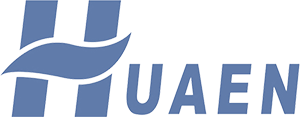Mastering Cash Management: Easy Ways to Reduce Costs
Cash management is a critical aspect of any business. Effectively managing cash flow can significantly impact a company's profitability. It is essential to find ways to reduce costs and optimize the use of available funds to ensure the financial health and stability of the organization. In this article, we will explore easy ways to master cash management and reduce costs to improve your bottom line.
Understanding the Importance of Cash Management
Cash management involves the collection, concentration, and disbursement of cash. It also encompasses short-term investments and borrowing. Efficient cash management is essential to meet the organization's commitment to pay salaries, vendors, and other obligations while ensuring adequate funds for operations and growth.
Without effective cash management, companies may face cash shortages, which can lead to missed opportunities, late payments, and damage to their creditworthiness. In contrast, efficient cash management can result in cost savings, improved financial stability, and increased profitability.
To master cash management, it's essential to analyze your current practices and identify areas for improvement. By implementing the right strategies, you can reduce costs and optimize the use of available funds. Below, we will discuss some easy ways to achieve this.
Streamlining Accounts Payable and Receivable Processes
One of the most effective ways to improve cash management is to streamline accounts payable and accounts receivable processes. Efficient accounts payable processes can help you take advantage of early payment discounts, avoid late payment penalties, and maintain strong relationships with suppliers.
To achieve this, consider negotiating favorable terms with your suppliers, using electronic invoicing and payments, and implementing automated accounts payable systems. Additionally, it's important to regularly review your accounts payable aging report to identify any overdue payments and take timely action to remedy the situation.
On the other hand, optimizing accounts receivable processes can help you accelerate cash inflows and improve overall cash management. This can be achieved by offering incentives for early payments, sending timely and accurate invoices, and promptly following up on overdue accounts. By implementing these strategies, you can reduce the days sales outstanding (DSO) and improve your cash position.
Implementing Cash Forecasting and Budgeting
Cash forecasting and budgeting are crucial tools for effective cash management. By forecasting your cash inflows and outflows, you can anticipate potential cash shortages or surpluses and take proactive measures to address them.
To implement cash forecasting, start by analyzing historical cash flows and identifying recurring patterns. Consider various factors that can impact cash flows, such as seasonality, market trends, and economic conditions. Use this information to create a cash flow projection that can guide your decision-making and help you optimize your cash position.
Similarly, budgeting plays a critical role in cash management by providing a roadmap for allocating financial resources. By creating a realistic budget that aligns with your business goals, you can prioritize spending, identify areas for cost reduction, and ensure that funds are available for essential activities. Regularly monitor and compare actual performance against the budget to make any necessary adjustments and improve cash management.
Optimizing Inventory Management
Inventory management directly influences cash flow and profitability. Excess inventory ties up valuable funds and can lead to increased storage costs, obsolescence, and markdowns. On the other hand, insufficient inventory can result in stockouts, missed sales opportunities, and customer dissatisfaction.
To optimize inventory management, start by conducting a thorough analysis of your inventory levels, turnover rates, and carrying costs. Use this information to identify slow-moving or obsolete items and take action to liquidate them through promotions, discounts, or alternative distribution channels. Additionally, consider implementing just-in-time inventory practices, establishing vendor-managed inventory programs, and leveraging technology to enhance inventory visibility and control.
By optimizing inventory management, you can free up cash that is currently tied up in excess inventory and improve your overall cash position. This can also lead to cost savings, reduced storage expenses, and better alignment with customer demand.
Exploring Financing and Investment Options
Another aspect of mastering cash management involves exploring various financing and investment options to optimize the use of available funds. When evaluating financing options, consider factors such as interest rates, repayment terms, and the impact on cash flow. For example, if you have outstanding debt, you may explore opportunities to refinance existing loans at more favorable terms or consolidate high-interest debts.
On the investment side, consider allocating excess cash into short-term investment vehicles that offer competitive returns while maintaining liquidity. Evaluate options such as money market accounts, certificates of deposit, and treasury bills to ensure that your cash reserves are working for you.
When exploring financing and investment options, it's essential to weigh the potential benefits against the associated risks and align your decisions with your overall cash management strategy. By taking a proactive approach to financing and investments, you can improve your cash position and reduce costs in the long run.
In summary, mastering cash management is crucial for the financial health and stability of any organization. By understanding the importance of cash management, streamlining accounts payable and receivable processes, implementing cash forecasting and budgeting, optimizing inventory management, and exploring financing and investment options, you can reduce costs and improve your overall cash position. By implementing these strategies, you can make informed decisions that positively impact your bottom line and set the stage for long-term success.
.Huaen PRODUCTS





